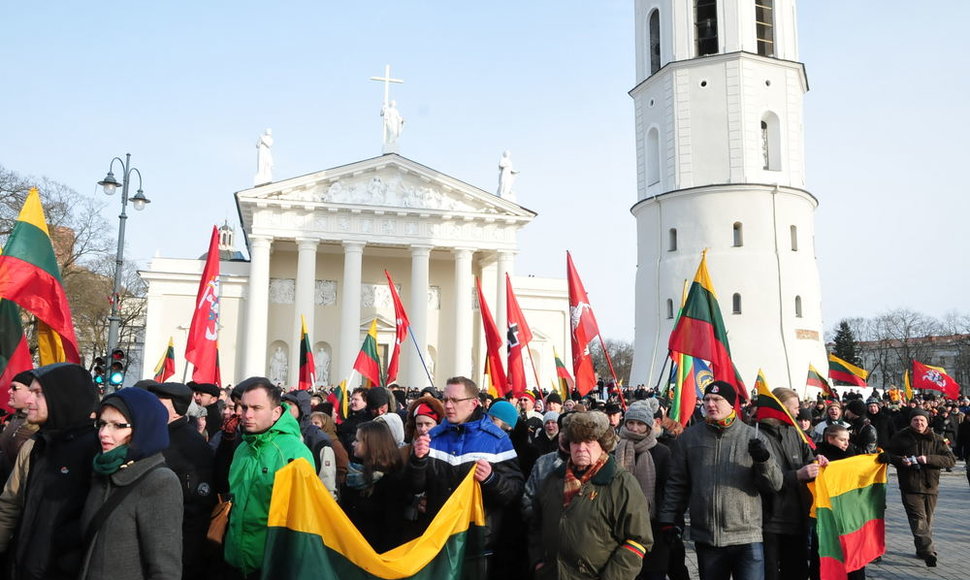"You will not resolve similar problems with bans. In fact, a dialogue is very important," he told the Žinių Radijas (News Radio) on Tuesday.
In his words, the president backs all non-offensive festive initiatives.
"Talking on both initiatives of nationalist youth and initiative of other people, the president is glad and proud of everyone who know how to celebrate in a dignified, respectful way without offending other people of social groups," Lingė said.
He underlined that there were no incidents during Monday's march which was also attended by signatories to the Act of the Re-Establishment of the State of Lithuania.
The very march issue is over-exaggerated, the presidential adviser said.
"Overall, the exaggeration of this issue is huge and it's a high-profile thing when certain acts of provocation or similar things are expected. But the police themselves recognized that there were no incidents," Lingė said.
Several thousand people took part in an unsanctioned nationalist march through central Vilnius on Monday afternoon. Such marches are traditionally held on March 11 when Lithuania marks the Day of Restoration of Independence.
Vilnius authorities had not issued permission for a march on Gedimino Avenue and nationalist youth organizations refused to hold the event on Upės Street a little further from the city center, as proposed by the authorities.
The Lithuanian Nationalist Youth Union appealed against the decision but a Vilnius court rejected the appeal, saying that state institutions have a prerogative to choose locations for marking official holidays.












